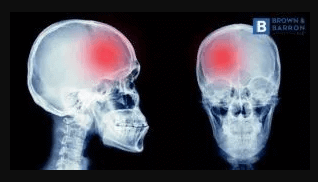A stroke is one of the worst complications that can happen during surgery. In most surgeries, the chance of a stroke is low. However, in certain surgeries, such as high-risk cardiac and brain surgeries, the risk of perioperative stroke (a stroke during surgery) could be as high as ten percent. In addition to the type of surgery involved, there is a higher risk of stroke during surgery in certain types of people as well.
What Happens During a Stroke?
A stroke is a horrible injury that occurs when blood vessels in your brain become clogged or burst. Your body’s circulatory system delivers blood rich with oxygen and nutrients to your brain. When that blood flow is interrupted by a stroke, the brain cells begin to die within minutes, leading to potential brain damage or even death. The long-term health impact of a stroke depends on the severity and location of the stroke within the brain, among other factors. Even if a person survives a stroke, the results can be devastating, including paralysis, speech problems, vision loss, loss of cognitive function, and other long-term disabilities. In severe cases of stroke, people can lose the ability to care for themselves.
For a free legal consultation, call (410) 698-1717
Why Are Some People More Prone to Strokes During Surgery?
People with certain health issues, such as obesity, high blood pressure, high cholesterol, and diabetes, are at a higher risk of stroke, whether they are undergoing surgery or not. Other people have “non-modifiable” (i.e., unavoidable) traits that make them more likely to have a stroke during surgery, according to research published in the National Institute of Health’s National Library of Medicine. These include:
- Age. The risk of stroke during surgery increases with age. For people in their 80s or older, the risk can be six times greater.
- Gender: Female patients, especially elderly women, can have a higher risk of perioperative stroke due to increased atherosclerosis after menopause.
- Migraines. People who suffer from migraines, especially migraines with auras, showed an increased risk of perioperative stroke.
- Other medical conditions. Previous stroke, atrial fibrillation, and recent myocardial infarction are also factors, according to a research paper on perioperative stroke in the NIH’s National Library of Medicine.
How Patients and Doctors Can Prevent Strokes During Surgery
Strokes result in as many as 6.2 million deaths annually. While there are certain factors we cannot control, like our age and gender, there are lifestyle changes we can make to reduce our chances of a stroke. Maintaining a healthy diet and managing our weight are steps that reduce the circulatory issues that can contribute to strokes.
Medical professionals also must contend with risk factors that cannot be controlled, but there are also many risk factors that can be managed by doctors to avoid strokes during surgery. If you or a loved one was the victim of a stroke during surgery, resulting in serious injury or death, it is important to get the facts on existing risk factors that should have been considered to avoid the stroke. If you suspect that a stroke could have been prevented, it’s best to trust that instinct and get professional answers.
Contact Brown & Barron online or call (410) 698-1717 for a free, no-obligation review of your case to determine if you could be entitled to a financial settlement.


